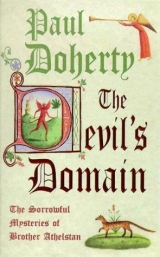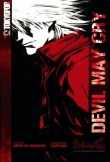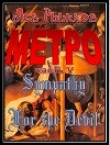
Текст книги "The Devil's domain"
Автор книги: Paul Doherty
Жанр:
Исторические детективы
сообщить о нарушении
Текущая страница: 4 (всего у книги 19 страниц)
CHAPTER 4
Cranston and Athelstan, with a woebegone Sir Maurice in tow, left the Savoy Palace. They took a barge further along the Thames to Fish Wharf and threaded their way along the narrow runnels which wound through houses and shops towards St Paul’s. At first they had been too nonplussed to speak. They were accustomed to accepting the Regent’s commissions to investigate this or that, but the prospect of becoming heralds for this knight of the doleful countenance sitting opposite them in the barge truly confounded them. Athelstan’s mind teemed. How could he do anything? His knowledge of women, and he smiled to himself, well, the least said the better! Sir John broke the silence and leaned over and grasped the young man’s knee.
‘I know what it’s like, lad,’ he growled. ‘Years ago, when I pursued the Lady Maude, I wasn’t like this; sleek as a greyhound I was, fast as a swooping hawk, my heart and soul on fire. It was just poor old Jack Cranston then but courage and tenacity will achieve the desires of your heart.’
Sir Maurice thanked him. Athelstan could see the mirth in the young man’s eyes at the picture of a sleek and swooping Sir John.
‘Ah yes, those were the days,’ Sir John repeated as they made their way through the alleyways. ‘What a siege of love, and I tried every stratagem.’
Athelstan had to hang behind them because he’d begun to laugh so much his shoulders were shaking. He couldn’t really think of Lady Maude as a castle while the prospect of Sir John deeply in love was a thing of wonder.
Sir John, one hand on Sir Maurice’s shoulder, steered him through the crowds. Athelstan, trailing behind, realised that he had been sheltering in St Erconwald’s so long the crowds, the smell, the press made him feel uneasy. The sun was strong and the heat made his rough serge gown cling to his sweat-soaked skin. Sir John loved the city but Athelstan always found it strange, filled with images, pictures, which reminded him of scenes on a painted wall.
Two men on a corner of Old Bowyers Row were teaching their pet weasels how to kill a rat. Further along two beadles were making a whore fumigate herself by standing over a dish of burning coals, her dirty skirts pulled up under her breasts. Apprentices came out from behind stalls to catch Sir John’s arm. He shook them off as he did the greasy fingers of the owners of the cookshops who always regarded Sir John as a generous patron. The dung carts had not yet reached this part of the city and the lanes and alleyways were still full of rubbish from the previous day. The sewers down the streets brimmed with dirt. Cats, dogs, pigs and even a few chickens scrambled among the muck looking for tidbits. Street signs creaked in the light breeze which had sprung up. Above them, windows of the lean-to houses had been thrown open. People talked and shouted to each other. Now and again, if the street scavengers weren’t looking, they tossed out refuse on to the growing piles.
At Paternoster Row they had to stop. Sir John even paused in his advice to Sir Maurice as a strange procession of men and women, dressed in bright yellow, made their way up Newgate. These wore their hair long and untended and walked in unison; every so often a bell would ring. They would stop, clap their hands and leap into the air shouting ‘Hosanna!’
‘The Joyeurs.’ Sir John spoke over his shoulder at Athelstan. ‘Just look at the silly buggers!’
The Dominican did, fascinated. He had heard of these men and women who believed that the Second Coming was near and patrolled the city in feverish expectation. According to them, Jesus would appear at Blackheath and found the new Jerusalem.
‘There must be sixty of them!’ Sir John muttered.
The Joyeurs heightened Athelstan’s sense of unreality with their strange uniform walk, abrupt stops, the clapping of hands and raucous shouts.
Once they had passed, the three continued. They entered the Shambles, the beaten paving-stones awash with blood and gore from the butchers’ stalls and slaughterhouses. Outside Newgate, the stocks had been set up and the beadles were inviting citizens to throw rotten vegetables at the unfortunates fastened there, hands and heads clasped tightly between the wooden slats. Further up another crowd was waiting to visit relatives in the city prison. Turnkeys in their shabby leather aprons were moving among them taking bribes, choosing who should go in first.
At last they were free of the press, making their way up through the city gates and across Smithfield. Athelstan sighed with relief. The stench and the heat were not so intense and the great open expanse was deserted, although stall-holders were getting ready for the great horse fair the following day. They crossed some waste ground. Sir John paused to take a few gulps from his wineskin. Sir Maurice refused but Athelstan was only too grateful to wash the dust from his throat. They continued along dusty trackways which wound between the hedgerows, the noise and bustle of the city giving way to the chirping of birds and the hum of crickets. At last they reached Hawkmere Manor. The grey, forbidding curtain wall was dominated by a high timbered gate-house. Archers stood there, men-at-arms along the ramparts. Athelstan pulled at the great bell.
‘Piss off!’ one of the archers shouted down.
‘I’m Sir John Cranston!’ the coroner bellowed. ‘And, if you don’t open this bloody gate, I’ll hang you from the gatehouse!’
There were muttered curses followed by the sound of footsteps. A small postern door in the great iron-studded gate swung open and a shamefaced archer ushered them in. Sir John poked him in the chest.
‘Don’t ever tell me to piss off, lad!’ He pulled back the archer’s hood, revealing a mangled left ear. ‘Who did that?’
The narrow-faced archer forced a grin, revealing his black and bleeding gums.
‘The French caught me outside Calais.’
‘You are a bloody liar! The French would have taken two of your fingers off, not your ear!’
The archer looked crestfallen. ‘I stole a goose outside Calais,’ he muttered.
‘That’s better.’ The coroner glanced across the cobbled yard which stretched up to the main door of the manor. ‘Now, lad, run ahead and tell Sir Walter Limbright that Sir Jack Cranston is here.’
Athelstan opened his pouch and gave the archer the commission they had collected from one of John of Gaunt’s clerks. The archer hurried off. Athelstan looked up at the manor.
‘A gloomy place to live in,’ he commented. ‘And a gloomy place to die!’
Hawkmere was built out of grey ragstone, four stories high. Chimneys had been added on at each end of the sloping, red-slated roof. The front door was black and forbidding. The steps leading to it were choked with weeds and crumbling. The windows were either arrow slits or small squares of wood, not filled with glass but protected by shutters from within and iron bars on the outside. It reminded Athelstan of the great block houses in France, built by the English to control crossroads, bridges and fords over rivers.
The archer had disappeared round the back. Athelstan could see now why Hawkmere had been chosen as a prison. On the other three sides of the house ran a great curtain wall which probably defended the outhouses and buildings behind it. He glanced at his companions; Sir John was standing, legs apart, eyes half-closed. Sir Maurice looked as if he were a thousand miles away and, once again, Athelstan wondered how they could possibly help this young man’s futile pursuit of his beloved. Sir John knew Sir Thomas and so did Athelstan. Sir Thomas had a reputation for being hard-fisted and stony-hearted. A man who lent monies to everyone and always demanded a good profit in return.
‘Come on, Athelstan,’ Sir John growled. ‘I’m not standing here baking in the sun.’
He marched across and up the steps, the other two close behind, and hammered on the great oaken door. It swung open and a servant ushered them in.
The inside of Hawkmere Manor was as gloomy as its exterior. The hallway was so dark, cresset torches spluttered in their iron holders. They were taken down a shabby passageway, their boots ringing hollow on the hard grey paving-stones. Sir Walter Limbnght was waiting for them in his chamber just near the Great Hall. A small, surly-looking knight, he had thinning grey hair, eyes close-set, a cynical cast to his mouth. He was unshaven and his dark-brown doublet was stained. He rose to greet them.
‘I was told of your arrival, Sir John. I was coming…’
‘We decided not to wait,’ Sir John snapped. ‘It’s hot outside.’
‘Would you like something to drink?’ Sir Walter became nervous as he realised he had been caught out in his bad manners.
‘Perhaps later,’ Athelstan intervened quickly.
Sir Walter handed the commission back.
‘It’s not my fault,’ he wailed. He picked at a stain on his tunic. ‘I’ve kept the prisoners safely housed and protected. No one comes in here apart from that arrogant fop de Fontanel and, when he does, I watch him like a hawk. My Lord of Gaunt can’t…’
‘Where’s the corpse?’ Sir John demanded.
Sir Walter blinked. ‘Yes, yes, quite, you’d best come with me!’
He led them out of his chamber along a passageway which smelt of stale vegetables. He reached the foot of a wooden spiral staircase. A pale young woman with light brown hair was sitting on the bottom step. She was picking at the floor and didn’t look up as they approached.
‘Lucy! Lucy!’ Sir Walter glanced at Sir John. ‘This is my daughter.’
The young woman glanced up; her face was vacuous, her eyes empty, her lower lip hung loose and a trail of saliva ran down her chin. A pretty-looking girl but her soul was gone, her wits fuddled.
‘I’m going to press some flowers, Father.’ She became aware of the visitors and squinted up at them. ‘They are not supposed to be here.’
‘Hush now, Lucy! They are from my Lord of Gaunt.’
‘Have they brought some money?’ she asked.
‘It’s Sir John Cranston,’ Sir Walter replied. ‘He’s coroner of the city, come to view the corpse.’
‘All Frenchmen are corpses,’ she replied. ‘And one’s up there, stiffening and cold, smelling like a fish.’
‘God have mercy on her!’ Sir Walter said. ‘Her wits wander. Sir John, she has no great love of the French.’
They reached the second gallery. The passageway was narrow and dark, the floor boards unpolished, the white plaster battered and peeling. Nevertheless, the doors to the chambers they passed hung straight and secure. Sir Walter stopped at one of these and pushed it open. The room was large but poorly lit. The shutters on the windows were thrown back but the little sunlight which poured through did nothing to lift the gloom or the summer breezes soften the stench of death and decay. A crucifix hung on the far wall, a few sticks of furniture and two battered leather coffers stood scattered around. On the narrow cot bed lay the corpse. Athelstan glimpsed a protuberant nose, greying skin; the dirty sheet meant to cover it had slipped to one side. Although he had given the last rites to many people, Athelstan was always struck by how pathetic a corpse looked. This was no different.
Athelstan crossed to the bed. He was not a physician but one glance told him that Guillaum Serriem had died in agony. The eyes were open, the pupils rolled back, the mouth hung slack. The skin of the face was puffy and discoloured. Athelstan pulled up the shift, noting the dark purple blotches which discoloured the chest and the muscular stomach. He opened the small writing-bag he always carried and took out a thin-stemmed horn spoon. He forced this into the mouth; the cadaver was stiff though the jaw was still slightly slack. The pink skin inside the mouth had turned a dark purplish hue, the gums and tongue were swollen. Athelstan sniffed. There was an odour, slightly sweetish. Athelstan knew and recognised a number of poisons but not this, which had the sugary smell of marzipan. He inspected the corpse for any recent wound or mark. Serriem’s body was lean and muscular; it bore the high, pink, furrowed cuts where old wounds had healed but nothing out of the ordinary. Athelstan whispered the Requiem, made the sign of the cross over the corpse and pulled the sheet over that ghastly face. Sir John was sitting on a stool mopping his brow. Sir Maurice was playing with the wrist guard, Sir Walter was going round the room touching things as if he might find something significant. The door was pushed open. A young man entered, tall, thin and stooped, long brown hair falling to his shoulders. He was sharp-eyed and clean-shaven with a kindly face.
‘Osmund Aspinall,’ Sir Walter introduced him. ‘He’s our leech and apothecary.’
The physician hitched his fur gown and pulled up the belt which hung loose round his thin waist. He shook Sir John’s hand and then Athelstan’s, peering at them closely as if short-sighted.
‘I’m a physician,’ he joked. ‘Most people call me a leech. I have chambers in Cripplegate and Sir Walter here pays me to keep an eye on the prisoners.’ He sat on the edge of the bed and patted the corpse. ‘Poisoned, yes?’
‘How do you know?’ Athelstan asked, going to sit on the small bench under the window.
Aspinall shrugged. ‘Brother, there are as many poisons on the market as there are pigeons round St Paul’s. Belladonna, henbane and at least three types of arsenic.’
‘But this one?’ Sir John asked.
‘I can’t recognise it but, as I have said, there are so many.’
‘How was it administered?’ Athelstan asked.
‘Oh, by mouth. There’s no cut on the corpse.’
‘Could it have been an accident?’
‘Possibly.’ Aspinall gestured at the window. ‘There’s a herb garden down there, with berries and plants which might kill a man.’
‘How long does it take such a poison to work?’ Sir Maurice asked.
‘It depends. I knew of an old woman in Guttersnipe Alley who was poisoned by her son over a period of days but this was one which acted quickly. It would disturb the humours, clog the blood and, by the look on the corpse’s face, he probably choked.’
‘Well, well, well.’ Sir John tapped his boot on the floor. And where would they get poisons from?’
‘There’s none here,’ Sir Walter insisted. ‘None whatsoever.’
‘And you, Master Aspinall?’
The physician spread his long fingers and played with the gem-encrusted ring on one of them.
‘My lord coroner, I have heard of you and Brother Athelstan.’ He laughed drily. ‘Sharp of eye and keen of wit. I assure you that I brought no poison into here, left no potion, gave no medicines. The prisoners are soldiers, seamen, hard and sturdy. The food could have been improved and their humours were disturbed by being confined but nothing else.’
‘And you know nothing of the prisoners or this man’s death?’
Aspinall got to his feet. ‘I know nothing, Sir John.’
‘Why are you here today?’
‘I came to ensure all was well. I inspected the corpse this morning but thought I should return, just in case.’
‘In case of what?’ Athelstan asked, getting to his feet.
Aspinall turned at the door and leaned against it, hands behind his back. He stared up at the ceiling.
‘Brother, you are the coroner’s secretarius. I am a physician, not a master of logic. We have a man poisoned. Now it could have been an accident. He may have found something in this house and eaten it but, God knows, that’s not the truth.’
‘So?’
‘In my experience, Brother, when such deaths occur they are not isolated events.’
‘You mean others will be poisoned?’
‘I know they will be. Oh, I thought about it this morning. Why should anyone kill Serriem? Hawkmere Manor is close and securely guarded; the murderer must know that he stands a good chance of being caught. So Serriem’s death was meticulously planned. It was no crime of passion and it may be one of many.’
Athelstan scrutinised the physician. Aspinall spoke sense. Was there conflict between the prisoners? He glanced sideways at Sir Walter. Or a paying-off of old scores?
‘I’ve also checked the stores and the wine cellar.’
‘You had no right,’ Sir Walter protested.
I have every right, Sir Walter. I am physician to the prisoners. My Lord of Gaunt has paid me good silver. However, do not trouble yourself. The meat and cheese could be fresher, the wine sweeter but the food stores are not tainted.’
‘Are there vermin here?’ Athelstan asked, remembering Ranulf the rat-catcher.
‘Of course.’
‘You put down no poison?’
‘We have three great cats.’ Sir Walter smiled sourly. ‘We do not feed them and they are half-wild, they take care of the vermin.’
‘When did Serriem retire to bed?’
‘With the rest at nine o’clock. They supped at seven, walked in the garden. Serriem played checkers with one of the prisoners. Pierre Vamier.’
‘And the relationships?’ Sir John asked. ‘Between the prisoners?’
‘They are cordial enough.’ Aspinall spoke up. ‘Sir Walter will confirm this. They keep to themselves. They are homesick for their families in France, eager for their ransoms to be raised. Yet.’
Sir John undid the stopper of the wine and took two great gulps. He offered it to his companions but they shook their heads.
‘Well, go on.’
‘In the last week to ten days,’ Sir Walter said, ‘something has changed, they do seem wary of each other.’
‘How were they captured?’ Athelstan asked.
‘I did that.’ Sir Maurice spoke up. ‘There are five of them, or there were. Vamier, Gresnay, Routier, Maneil and Serriem. They were captains, lieutenants and masters of the two great French cogs of war: the St Sulpice and the St Denis. Our wine fleet from Bordeaux had sailed up into the Channel. Now, it is customary for the ships to disembark some of their cargo at Calais and make a dash across the Straits into Dover. The St Sulpice and St Denis were waiting for them.’
‘And what happened?’ Athelstan asked.
‘I was in Dover at the time,’ the young knight continued. ‘Commanding a large force of knights, hobelars, men-at-arms and archers. We had four craft at our disposal led by a cog of war, The Great Edward. The Constable of Dover Castle received information that the St Sulpice and St Denis would be waiting for our ships so we took to sea. It was a long and bloody fight: the St Denis was sunk, the St Sulpice captured.’
Athelstan picked up his writing-bag, tying the cord at the top.
‘That’s almost miraculous,’ he observed. ‘From where did the Constable of Dover Castle get his orders?’
‘By courier from London. The message was general. It simply said that our wine fleet would be leaving Calais and French privateers were busy in the Channel’
‘A remarkable coincidence.’ Sir John, wheezing and puffing, got to his feet.
‘What are you implying?’ Athelstan asked.
‘Something I’ve suspected.’ Sir Maurice spoke up. ‘The St Sulpice and St Denis came out of a French port. They had to be prepared and provisioned for sea.’ He shrugged. ‘It was common gossip that the Regent had a spy in the French camp who sent him news about this.’
‘And now the French captains themselves suspect this?’ Athelstan asked.
‘Possibly.’
Sir Walter rubbed his hands together, pleased that suspicion had been diverted from him.
‘It could well cause animosity amongst the prisoners,’ he declared, bright-eyed, ‘if they thought someone was the traitor, perhaps Serriem?’
Sir John clapped him on the shoulder. And you, Sir Walter?’
‘I know what you are thinking.’ The knight gaoler shrugged Sir John’s hand off. ‘Don’t worry, Sir John, I thought the same as soon as I knew Serriem was dead. Here’s old Limbright, a man who hates the French, who killed his wife, sons and drove his daughter witless. What a marvellous opportunity for revenge!’ He drummed his fingers against his dagger. ‘But I didn’t want them dead, Sir John. I just wanted them prisoners. I wanted them to experience the hurt that I felt. To pine for their families as I did. To walk round and round a room and feel the grief of separation.’ He faced the coroner squarely. Athelstan noticed the spots of anger high in his cheeks. ‘And if I wanted to kill them, Sir John, I’d do it honourably. I may be the knight of the dirty jerkin, ageing and bitter, but it would be sword against sword, or lance against lance, not poison in the dead of night.’
‘Well said! Well said!’ Athelstan commented.
‘And the corpse?’
‘It will be interred in some churchyard!’ Sir Walter snapped. ‘If the French want it home they’ll have to pay for it!’
‘I’d best be leaving,’ the physician interrupted.
Aspinall bid farewell, and quietly left.
Sir Walter waited until the footfalls faded.
‘Now there goes a man,’ he muttered sarcastically, ‘who believes that blunt, honest speech covers a multitude of sins.’
‘What do you mean?’ Athelstan asked.
‘Our good physician is what he claims to be but he likes visiting Hawkmere Manor.’
‘Stop talking in bloody riddles!’ Sir John snapped.
‘Aspinall is a bachelor; he’s taken a liking to young Gresnay.’
‘You mean he’s a lover of men?’
‘I didn’t say that, Sir John. Serriem did. Aspinall is recently arrived in London. I know little of him. Anyway, Gresnay had a fall downstairs. Aspinall came to examine him. Nothing more than bruised ribs. Serriem cracked a joke about our physician being as tender as a woman. Gresnay and the physician became rather flustered, very embarrassed. A fight might have ensued but Vamier intervened.’
‘Is there anything else we should know?’ Sir John asked.
‘Very little! The French seem a close-knit group of sailors and soldiers who’ve fought against the Goddamns since their youth. They give little away.’
‘And how long will they remain here?’ Athelstan asked.
‘They are all from fairly wealthy families. But the ransom is steep, ten pounds in gold each.’
‘Why so high?’
‘Talk to any ship owner along the Thames,’ Sir Maurice answered. ‘The St Sulpice and St Denis were hated and feared. Those two warships did terrible damage to English shipping. They are only receiving what they served up to others.’
‘Wait! Wait!’ Sir John held his hand up as Sir Walter went to open the door. ‘They commanded warships?’
‘I’ve told you.’
‘Sir Maurice, when the St Sulpice was taken, what was its cargo?’
The young knight scratched his chin. ‘Most of it was armaments, some chests and coffers which were immediately sealed with the Regent’s insignia. The cargo always goes to the Crown,’ he added wryly.
‘And the ship?’ Sir John persisted.
‘Oh, it now flies under English colours, it’s been renamed the Carisbrooke. ’
Athelstan cradled his writing-bag. Something was very wrong here. Why should a man be murdered in such close confined quarters? Was it a coincidence that the sly and subtle John of Gaunt had asked him and Sir John to help, in the affairs of the heart, the knight who had commanded the ships which had brought these Frenchmen to such a poor pass? We are in the dark again, Athelstan reflected; shown bits and pieces but denied the whole picture. He glanced quickly at the coroner, who was now showing obvious signs of the generous swigs from the wineskin. He had a fixed smile on his face, and was licking his lips and patting his stomach.
‘Come on, Sir John,’ he urged. ‘And you, Sir Maurice, let’s visit our French guests.’
The prisoners were assembled in the long, dingy hall below stairs. A narrow, gloomy room with rafters like a barn, its plaster walls had turned a dingy yellow from the countless fires in the crumbling, canopied hearth. Trestle tables stood about, badly scrubbed. Two thin-ribbed wolf hounds were busy licking the table-tops for morsels.
The French were seated on a dais sharing a jug of wine and a platter of roast chicken. Athelstan suspected that Sir Walter provided this to placate his prisoners and restrain them from launching into a litany of protests about their conditions. They were a taciturn, hard-bitten crew; younger than Serriem. Their hair was cropped, their faces weatherbeaten. They were dressed in dingy clothes, shabby jerkins with frayed, faded shirts beneath. The only exception was a girlish-faced young man with thick, red lips and eyelashes any girl would envy. He had allowed his blond hair to grow and his skin was so white Athelstan wondered if he rubbed paste into it.
They hardly bothered to acknowledge their visitors but kept talking among themselves until Sir Walter struck the table with his hand.
‘Ah, good morning, Sir Walter,’ one of them said. ‘We have visitors?’
Their gaoler made the introductions. Routier, with his close face, was the first to greet them. Maneil, surly, his left eyelid drooping, constantly fingered the deep scar on his cheek. Vamier was pleasant-faced, or at least he smiled with his eyes. Athelstan took an immediate dislike to the blond-haired Gresnay who simpered in silent mockery at them. Their command of English was very good. They ignored Sir Maurice, just acknowledging his presence with nods of their heads. Athelstan was surprised but he whispered that, unlike the knights of chivalry, sea captains nursed animosities and jealousies: they regarded him as the cause of their misfortune. Sir Walter rearranged more chairs round the circular table. He offered some wine but Athelstan quickly refused.
‘I suppose you’ve heard about Serriem? Poor Guillaum?’ Routier glared at Sir Walter. ‘It’s all a sham,’ he railed. ‘We are prisoners, kept against our will, exorbitant ransoms are demanded. Now we are to be poisoned!’
Sir John got up and leaned across the table.
‘I am no sham, sir! If murder is committed, justice must be done!’
Routier blinked and sat back.
‘In which case,’ Gresnay lisped, flicking his blond hair, ‘you are going to have to perform a miracle.’
‘Now, why is that, sir?’ Athelstan asked.
‘Why, Brother,’ Gresnay replied, ‘all of us took an oath that we would not eat or drink anything someone else didn’t also taste.’








